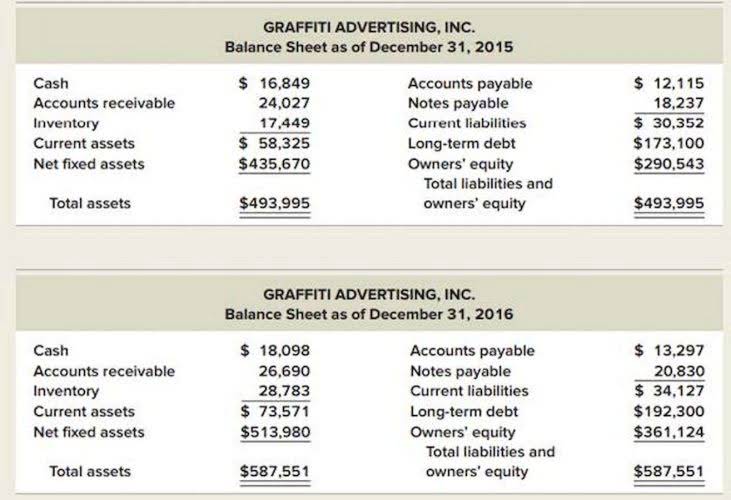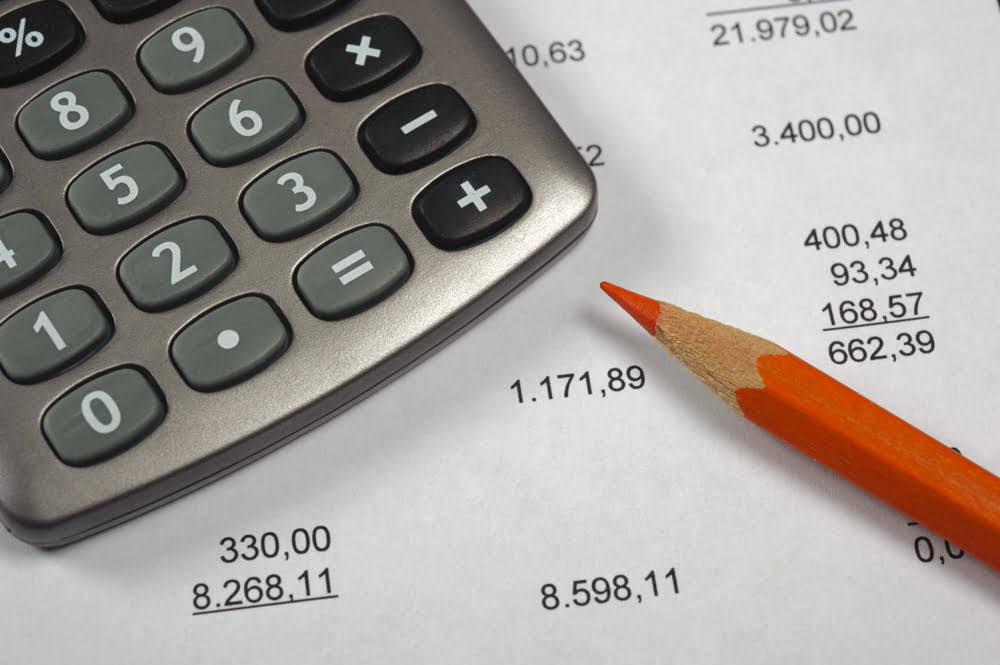Budget Vs Forecast
Content

A thorough budget offers clear guidance on how a company should be spending its resources by providing a line item for any expense imaginable. Budgets also create accountability for departmental spending because overages are apparent and gaps in appropriate funding become clear as the year unrolls. Teams should review the budget regularly and compare it with actuals, making each department responsible for any variances that occur. Leaders ask themselves how the business will stack up in the next 1, 5, or even 10 years. The “plan” answers that question by outlining the company’s operational and financial objectives. Executives build out teams and infrastructure based on this plan and the defined goals.

When you have a realistic financial projection, you can prepare a budget to meet your different goals. Make a mental note to update your revenue forecast and sales projections regularly. A static budget is a type of budget that incorporates anticipated values about inputs and outputs before the period begins. Budgeting is Budget vs Forecast the financial direction of where management wants to take the company. Would you like tips on management, leadership, team building and workplace communication techniques? DO account for rainy day funds, miscellaneous costs & margin of error. DON’T forget why you put figures into your planning, or where they came from.
The Difference Between A Budget Vs Forecast In Accounting
The plan also relies on historical performance data and subjective financial analysis, so it can never be fully accurate. A cash flow forecast will help you understand whether or not your business has the capital it needs to expand. Budget is the financial plan prepared by the business for its future economic activities. On https://www.bookstime.com/ the other hand, the forecast is just a prediction about future inflows and outflows of the business organization. Both of these are financial planning tools that assist the senior management of the organization in the decision-making process. A budget is defined as a detailed financial plan for a particular accounting year.
It is the process used to compose a plan or create an estimate during a prior year or at the beginning of a current year to help manage and control the income and expenditures of the company for that year. Some have even defined a budget to be a road map or financial guide that recognizes the income of the company, while detailing the expense allowances with a not-to-exceed expectation for that given year. Now let’s examine the definition of forecasting to compare the differences between the budgeting and forecasting process. Second, financial forecasting is typically for a longer period of time.
You can also use financial forecasting to help you make decisions on what sorts of loans would be best for your business. A budget forecast can be used when you first create your company budget or even be used as a supplement when conditions in the workplace change. Budgetingdetails how the plan will be carried out month to month and covers items such as revenue, expenses, potential cash flow and debt reduction. Traditionally, a company will designate a fiscal year and create a budget for the year. It may adjust the budget depending on actual revenues or compare actual financial statements to determine how close they are to meeting or exceeding the budget. A forecast uses historical and current transactional data, along with industry and market information, to help determine how to allocate budgets for anticipated expenses for a future period of time.
Set A Budget Timeframe
The budget is compared to actual results to determine variances from expected performance. When running a business at any stage, startup or otherwise, you need to use both budgeting and forecasting as tools for your financial model.
- Both of these are financial planning tools that assist the senior management of the organization in the decision-making process.
- As a company manager, you would like to know where your company is actually going.
- Forecasting helps a business to know the financial results by studying the historical data.
- Just get your best estimate in place and recognize that its going to change.
- The forecast is an integral part of the annual budget process.
- Many businesses still base their strategy on annual plans and budgets, which is a management technique developed over a century ago.
However, as you start climbing, you come across a large tree blocking your path. There is no way to continue on that exact path; therefore, you have to take a detour. While your budget is still to reach the summit, your forecast takes every part of your journey into account.
Budgets Vs Forecasts: Forecasts 101
The purpose of the two techniques underlines the critical difference between the two as budgeting is a detailed sketch of the aims and objectives of the company in a set upcoming period. In contrast, forecasting is the regular monitoring of the same so that the company knows whether it is reasonable to think that the target will be met.

For budgets, the report only includes the current approved budget amounts. If the financial plan type parameter is set to planned, then the report displays planned cost, forecast cost, and variance. For planned, the report only includes the current plan of record cost plan amounts. They can focus on a specific aspect of your business, like predicting this year’s holiday sales based on what happened last year.
Shorten Your Budget Cycle
A forecast may be for a long-term or short-term period or using the top-down or bottom-up approach. While budgeting and forecasting are used interchangeably, especially in small business circles, they are not the same. Your budget would help you manage business expenses, while forecasting gives you a good idea of your high-level business goals and the steps you should take to achieve them. A budget outlines your business’s projected cash flow, estimated revenue, and expenses for daily operations over a specific period. There are many upsides to budgeting, but the most important one is it is a sure-fire way to score idea-viability. To keep your company from missing its financial goals, set realistic targets for both your cash and profit flow.

A long-term forecast will provide valuable output to the management for their strategic business plan. In contrast, short term forecast is generally is done for operational and day to day business needs. Is a detailed statement of an enterprise’s financial activity, which includes revenue, expenses, investment, and cash flow for a particular period . Quantitative forecasting refers to data-backed business predictions. A budget is an estimation of revenue and expenses over a specified future period of time and is usually compiled and re-evaluated on a periodic basis. Budgeting can sometimes contain goals that may not be attainable due to changing market conditions.
Budgeting Vs Forecasting: Differences And Uses
Get instant access to video lessons taught by experienced investment bankers. Learn financial statement modeling, DCF, M&A, LBO, Comps and Excel shortcuts. Probe further to find out how you can help the business with whatever the relevant teams are struggling with. For example, if a business unit did not hit targets because it was unable to hire qualified staff in time, talk to Human Resources and find out if any initiatives are in place to correct this. In addition, it is important that, when seeking variance explanations, an FP&A analyst should come to the table prepared with as much data as possible. In addition, variances are relative to an organization’s key performance indicators .
- It is usually a short-term estimate of financial goals and conditions using quantitative data.
- The most obvious activity that needs to be completed prior to beginning work on a budget forecast is the creation of the budget.
- The actual financial model only requires that assumptions be made on the timing of revenue and expenses.
- Its important to have that static budget, so you can see how to improve your budgeting for future years, but focus on the variance vs forecast to see how your business is really doing.
- Profit CentersProfit Center is the segment or division of a business responsible for generating revenue & contributing towards its overall profit.
- A cloud-based platform created for tracking assets can help you collect this information to inform your budget better.
While a budget details expected future results, a forecast focuses on probable future events to inform whether a company will hit the targets set in a budget. To use the common analogy that the budget is a map, taken together, forecasting and budgeting are sort of like Waze or any map application on your phone. Budgeting is the map, and forecasting provides the tools to make adjustments in how you get to your destination. Since budgets are generally made to last an entire year, a budget might constrain necessary spending if any unexpected situations in cash flow arise.
Growing your knowledge base and learning about all areas of business can help you navigate towards success in your career. DON’T create a useless document that brings no value to the business besides looking good during a presentation….followed by endless explanations for failure throughout the year. DO be honest, direct & candid throughout all aspects of planning exercises. If you are leading the exercise, create an environment where people can be honest with you. DON’T hide this information in your figures, put it a separate line that is visible. If everyone hides extras/padding, the entire budget will be skewed and this could make for bad business decisions.
Budgets are typically prepared once a year, and it’s common to compare budget versus actual results as time progresses. Hence, while the budget provides management insight on what they want the company to attain, the forecast shows whether the company is able to achieve its budget or not. Forecasting of sales and expenses from past performance or peer performance provides a guide to developing an effective budget. When a company creates a financial forecast report, it will decide on a time frame for the forecast and then gather all past financial documents and necessary paperwork around the time frame.
The projection of business activities for future accounting period on the basis of historical data is known as forecast. The management does it in the light of past experiences and knowledge. Business forecasts predict the forthcoming financial inflows and their sources by evaluating current and previous data and trend analysis. A forecast relies on current data to make estimations about where a company will be within a set time period. A company’s budget outlines its future expenses and the revenue objective it hopes to achieve. Many businesses merge judgment and quantitative forecasting to determine future costs, plan the company’s trajectory, and forecast sales and market demand. Everything needs to be accounted for when budgeting and forecasting for the upcoming fiscal year, whether it’s the potential buyout of a competitor or just of the office supplies.
You can use forecasting for the short-term and for the long-term. While you can have a forecast for the entire year or even several years, companies typically have a revenue forecast for the quarter or six months out. The challenge with long-term forecasts is that so much can change in your business over the course of a year, that 2, 3, 4+ year forecasts tend to become less accurate over time.
By providing targets, they give businesses goals to aim for and a framework for meeting them responsibly. A budget estimates how much money your business will earn and how much it’ll spend over a specific period. At its simplest, a budget lists fixed and variable expenses and determines how to allocate the money coming into the business.
They also look at current and future possibilities as a way of safeguarding a business. If you have always thought of your business budget and your business forecast as one and the same, you’re not alone.
Budgeting Vs Forecasting: Whats The Difference Between The Two?
Finance leaders commonly use the three terms in conjunction with one another, allowing each model to inform the others. While most large corporations have a finance department dedicated to all things budgetary, for growing businesses the brunt of the budget and forecasting workload falls to business owners and management. This is the perfect time to remember why your business needs to budget and forecast – and how to get the most from yours.
Leave a Reply